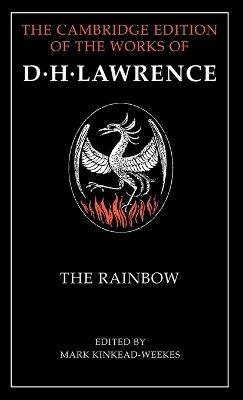Reviewed by brokentune on
After the being puzzled more than anything by Lawrence's penultimate book, Lady Chatterley's Lover, I thought I'd try another one of his that's been lingering on my shelves: This time I thought, I'd pick his first novel, The Rainbow.
Sadly, I have to report that Lawrence and I are parting ways for good.
After 44 pages of telling rather than showing, which centred on some really, really odd and completely narrow-minded portrayals of Brengwen's internal narrative, and his confusion by sex and women, and Lawrence describing a foreigner as monkey-like, I got the first page of the second chapter and figured I am done.
There is a long quote ahead, but I am fed up with stereotypes - whether it is the portrayal of women as either saints or sinners (literally mothers and sisters or whores in Lawrence's case) or whether it is serving up foreigners as stereotypes. I am so done.
She was the daughter of a Polish landowner who, deeply in debt to the Jews, had married a German wife with money, and who had died just before the rebellion. Quite young, she had married Paul Lensky, an intellectual who had studied at Berlin, and had returned to Warsaw a patriot. Her mother had married a German merchant and gone away.
Lydia Lensky, married to the young doctor, became with him a patriot and an émancipée. They were poor, but they were very conceited. She learned nursing as a mark of her emancipation. They represented in Poland the new movement just begun in Russia. But they were very patriotic: and, at the same time, very "European". They had two children. Then came the great rebellion. Lensky, very ardent and full of words, went about inciting his countrymen. Little Poles flamed down the streets of Warsaw, on the way to shoot every Muscovite. So they crossed into the south of Russia, and it was common for six little insurgents to ride into a Jewish village, brandishing swords and words, emphasizing the fact that they were going to shoot every living Muscovite.
Lensky was something of a fire-eater also. Lydia, tempered by her German blood, coming of a different family, was obliterated, carried along in her husband's emphasis of declaration, and his whirl of patriotism. He was indeed a brave man, but no bravery could quite have equalled the vividness of his talk. He worked very hard, till nothing lived in him but his eyes. And Lydia, as if drugged, followed him like a shadow, serving, echoing. Sometimes she had her two children, sometimes they were left behind. She returned once to find them both dead of diphtheria. Her husband wept aloud, unaware of everybody. But the war went on, and soon he was back at his work. A darkness had come over Lydia's mind. She walked always in a shadow, silenced, with a strange, deep terror having hold of her, her desire was to seek satisfaction in dread, to enter a nunnery, to satisfy the instincts of dread in her, through service of a dark religion. But she could not.
Then came the flight to London. Lensky, the little, thin man, had got all his life locked into a resistance and could not relax again. He lived in a sort of insane irritability, touchy, haughty to the last degree, fractious, so that as assistant doctor in one of the hospitals he soon became impossible. They were almost beggars. But he kept still his great ideas of himself, he seemed to live in a complete hallucination, where he himself figured vivid and lordly.
Reading updates
- Started reading
- 25 October, 2019: Finished reading
- 25 October, 2019: Reviewed
